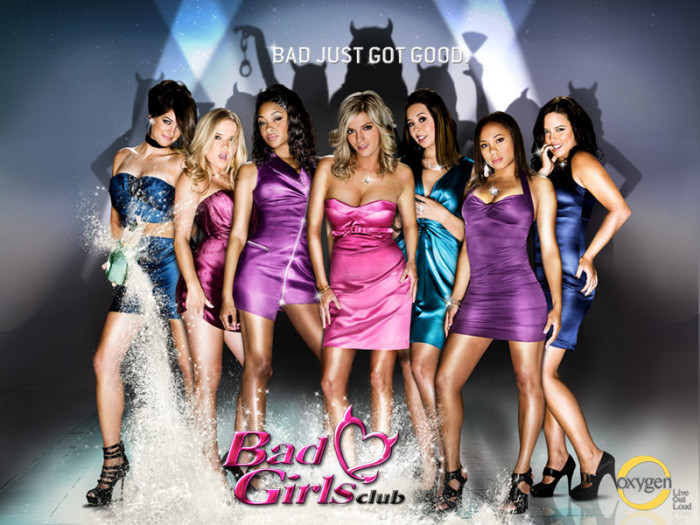Talkin’ About Bad Girls: Where Do We Draw the Line?
There’s a forum that I visit that has an interesting array of topics. On the site there are dozens of discussions ranging from:
What to wear to a fashion forward interview.
Ancient civilizations that you weren’t taught in school.
How little kids have no concept of “morning breath”.
The secret societies that run the world.
But, at the core of the website is it’s entertainment section. It’s filled with topics on actors and actresses, musicians, athletes, and wannabe socialites clinging to relevancy. So, after recently venturing into this section, I found several posts about a reality TV star and pro-athlete chaser, who’s now pregnant by a baseball player. Some people complimented her ability to snag a dude with a $140 million dollar contract. Others went on about how stupid the guy was for dating a well-known opportunist. However, quite a few women lamented how they’ve done all the “right” things in life – went to university, volunteered, built a career, regularly practiced the “90-day rule”, etc. – yet, they are still struggling to find a significant other and only have massive student loan bills to keep them warm at night. This set off what had to be the site’s 500th discussion about how “Bad Girls are winning”.

(Image via)
I mean the term has been all the rage in pop culture for decades. More recently, Rihanna has been called a “Good Girl Gone Bad”. Seven confrontational women are picked to live in a mansion, fight, and have their lives taped on the reality TV show, Bad Girls Club. M.I.A. reminded us “live fast, die young, bad girls do it well”. And people seem to love stories about former child actresses gone off the deep end. However, there are some things that confuse me about this topic:
What is the actual definition of a Bad Girl and is the term being misused?
Are Bad Girls simply women who lack decorum, are reckless, or rely solely on their sexuality for leverage?
Does the term have negative connotations only? Are Bad Girls the house full of women who have drunken catfights on TV? Or those who brag to the Daily Mail about how they frequent Sugar Daddy websites and make tons of money off of men?
Or can they include women seen as positive role models, who aren’t restricted to society’s constraints and who shake things up?
When TLC first came onto the music scene, they accessorised with condoms and sang about the fact that they “Ain’t 2 Proud 2 Beg”. Through this approach of boldly addressing delicate subjects, they were deemed Bad Girls in the 90’s R&B/pop world. Nonetheless, many people (myself included) regard TLC as edgy, admirable trendsetters.
Also, when I graduated from my all-girls high school, our graduation speaker made a great speech. It was based on Laurel Ulrich’s quote, “well behaved women seldom make history”, and described my class’s (very well-intentioned) rebellious streak. However, the speaker also broke down the ways in which most influential women throughout history have been rule-breakers. Does this term refer to them too?
Is this just another label that can be used to pit women against each other?
Parks & Recreation actress, Rashida Jones, recently wrote an essay for Glamour Magazine on the “pornification of everything”. In the article, Jones describes how 2013 has been a year of “very visible lady parts” and that too many stars are interpreting sexy in the same way: teeth licking, lots of bare skin, and bending over (I think she has a point). Anyway, her comments were targeted at several pop stars, including ones who have worn the Bad Girl label like a badge of honour. After voicing her opinions on Twitter, Jones got several angry Tweets accusing her of being a slut-shaming, pseudo-feminist and for implying that women must act a certain way. Can the whole Good Girl/Bad Girl dichotomy be accused of doing the same thing?
So what do you think? What is a Bad Girl? And is it a divisive, overused label that should disappear along with YOLO?
Tags: Bad Girl Club bad girls M.I.A Rashida Jones role models
Categories: Fire me up baby!
2 Comments
‘Bad girls’ are a stereotype created and perpetuated by the patriarchy, like the ‘straw feminist’. It’s a classic case of controlled subversion: the illusion of breaking free from society, but still able to be contained, objectified, and vilified. They serve the function of making the patriarchy look virtuous and valorous by providing an example of an exotic but ultimately dangerous Other. It’s been used since ancient times (think of Aphrodite, the ‘bad girl’ goddess, for example).
Thanks for the comment David and interesting insight! I totally agree that this is an example of controlled subversion.